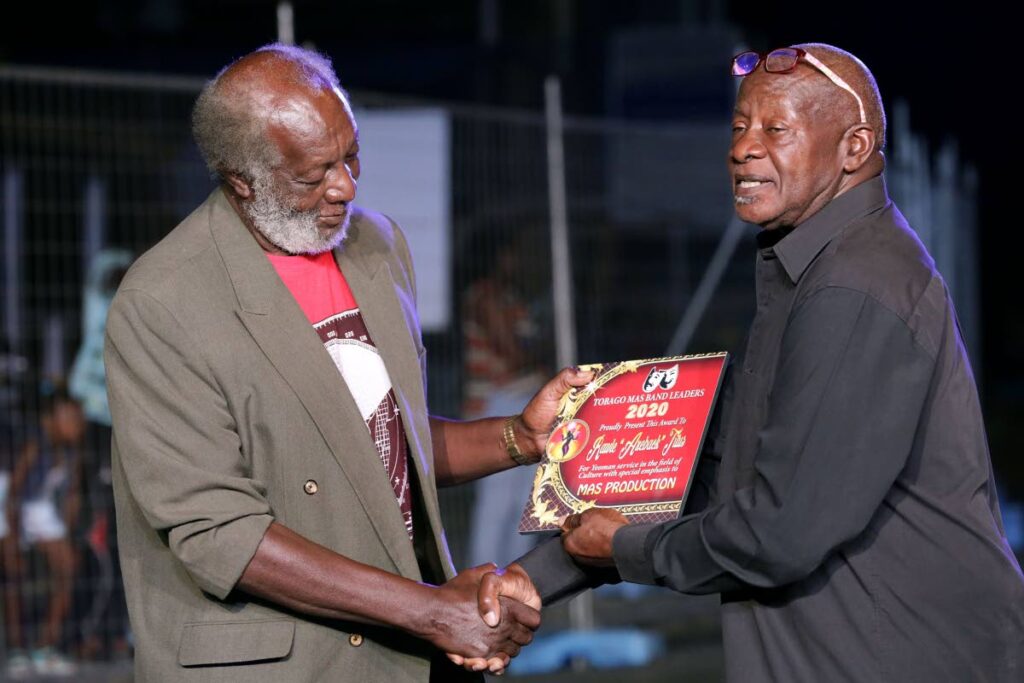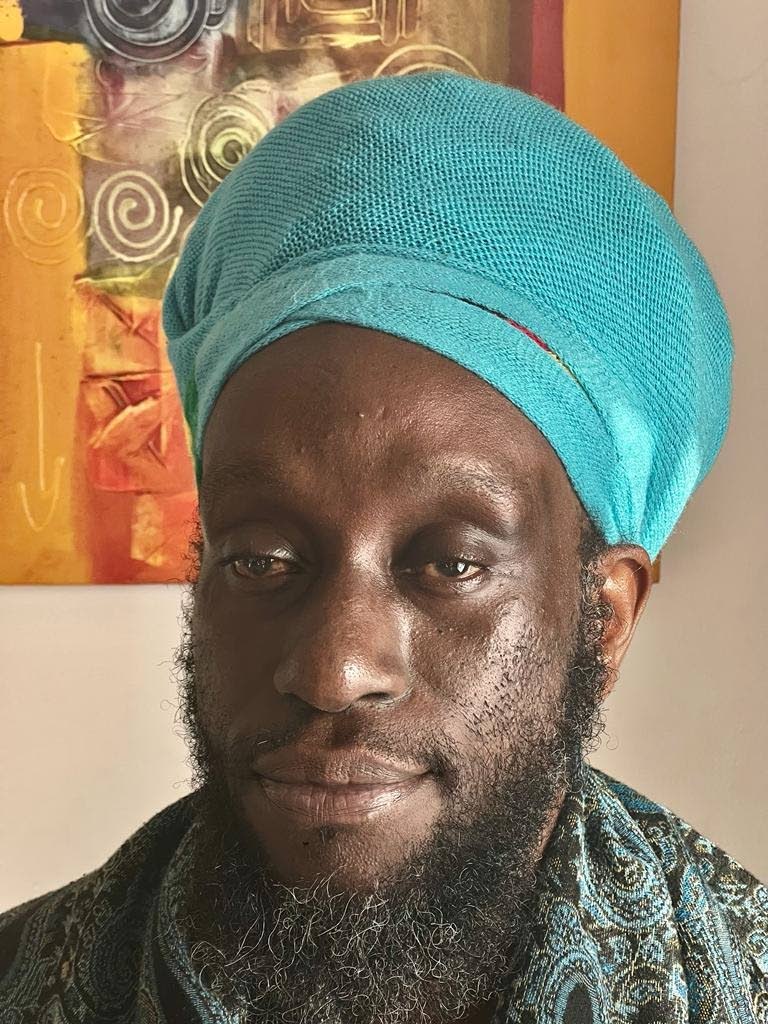Tobago Festival chairman: Save our culture for next generation

THE death of Tobago cultural icon Rawle “Axeback” Titus on January 2 has ignited fresh discourse in some quarters about the strategies, if any, that are being taken to preserve the island’s rich heritage for future generations.
Titus, 80, in his heyday, was an avid cultural performer who thrilled audiences on the island and further afield. But in his latter years, he also was respected as a writer, historian, poet, playwright and mentor to several of Tobago’s young performers.
Titus’ book, Wake People Wake: The Sacred and the Profane, a socio-anthropological study of the wakes of yesteryear, showcases the vibrancy of Tobago’s culture and is regarded as one of his seminal works.
At the time of his passing, Titus was completing a body of work, titled Prose, Pictures and Poetry, detailing the history of Tobago.
Chief Secretary Farley Augustine, in his tribute at Titus’ funeral service on January 10, gave the assembly’s commitment to ensuring that his unfinished work is published.
For Dr Charleston Thomas, chairman of the Tobago Festivals Commission Ltd, discussions surrounding the state of Tobago’s cultural heritage and even nationally, may not have arisen, had it not been for Titus’ passing and that of stalwarts Leroy Calliste (Black Stalin) and Francine Edwards (Singing Francine).
“That is really the impetus that is giving us this moment for asking these questions in a more real way,” he said in an interview.
“Had these deaths not occurred so quickly after each-other, I am not sure that there would have been that eagerness to talk about it. That, in itself, is a statement about the state of our cultural heritage.”
A former lecturer in cultural studies, gender studies and modern languages and literature, Thomas argued that barring the efforts of some in the fraternity to retain and preserve aspects of it over the years, there is still an urgent need for deep, comprehensive research on Tobago’s cultural heritage.
He observed that attempts at preservation, thus far, have focused largely on the African influence on the island.
“We have a very rich culture in terms of our indigenous heritage. We have inherited a lot from many cultural spaces. But one of the challenges I have is that we tend to largely accentuate the African heritage, which, by and large, is what we know. But we have other cultural spaces that we have inherited.”
Thomas said he is uncertain about the extent to which Tobagonians are aware of the contributions of the Europeans and indigenous peoples.

“So I don’t know that we can make a statement as to what the state of the culture is as regards to that.”
He regarded culture as the variables that have been put on display for generations, such as dance, speech band and the games Tobagonians once played.
“But to really seek out precisely what the state of our culture is must be directly contingent on research as well as an analysis on what actually happened.”
Thomas added, “To talk about culture as it is often presented is an easy way to romanticise things. There is a larger conversation that needs to be had in a more sober way. Right now, we are in the mode of knee-jerk reactions.”
Nevertheless, he noted that many aspects of the island’s heritage have been transmitted from generation to generation through an oral culture.
“We are an oral society and have our daily conversations more in the realm of an oral framework as opposed to the scribal framework. In other words, we exist more in the creole.
“That means that a lot of what we preserve happens almost instinctively. So we see people doing things and just do it. It happens almost organically.”
The scribal element, Thomas said, deals with bodies of research and the archiving of information in facilities such as libraries and museums.
He believes Tobago has performed poorly in this area.
“In the context of us also being a scribal society in terms of written literacy, there is dearth of facilities for research. And that there, for me, is one of the big problems.”
Thomas added, “So for example we are preserving the cultural heritage of our language. We are preserving that quite well because we pick it up, we learn it and carry it forward.
“There is even a performative element. We carry it to the stage and when we are angry we automatically resort to that because that is what we preserve orally. But to talk about the preservation of the works of someone like Mr Titus, that is where the thing is lacking.”
Thomas, who is also a writer, musician and linguist, attributed the situation to a lack of education and the manner in which Tobagonians are oriented towards their own education.
He recalled a conversation he had with noted sociologist Dr Susan Craig-James some years ago in which they discussed her book, Changing The Society of Tobago: 1838-1938.
Craig-James, he recalled, had said to him, “My biggest pain is that Tobagonians nah read nothing, nothing, nothing.”
Thomas said the book was the culmination of 28 years of research.
“All that research and to come to the realisation that we do not read. That there is a complexed problem.”
He believes the problem was compounded by the absence of a major library in Tobago for almost 16 years, the infusion of cable television and what he perceived as an increasing lowering of the standards at the primary and secondary school levels in English and History, over the years.
Thomas said when he returned from lecturing in Jamaica in some years ago, there was an absence of “a real tertiary level institution” in Tobago.
“That has kept the island away and out of serious discourse outside of the airwaves.”
He said in Trinidad, Jamaica and other islands with established tertiary institutions, “It is the university community that feeds and generates a certain kind of conversation.
“In Tobago, we have not had an established university on the island and therefore that kind of university culture has been kept away from the island.”
The nature of the work in Tobago, he believes, also does not fuel a desire for research.
“The work in Tobago is more or less predominantly governed by the THA and the people who generally leave the island and come back and work here, don’t quite see the need for higher education and research in order to survive.”
He went on, “You can survive with your bachelor's (degree). You can get into political office, become a chief secretary. But there is not necessarily a need factor to go further with studies and research in order to survive and live comfortably on the island.
“So we have a number of competing factors that make it quite difficult for serious research to happen on the island. The talk will happen but the factors are many and they are all competing.”
Nevertheless, Thomas applauded those who have produced books and other material as a means of preserving Tobago’s heritage.
But he lamented that they all appear to be working in silos.
“People have done it individually. Rawle Titus did his thing. Susan Craig-James did her thing. But we haven’t yet come to a place of knowing how to pool all of that work together in a serious way with the right set of people knowing what to do and having it lodged in a place that is sacred and generates and magnetises more work like that.”
To address the issue, he suggested that the THA establish with alacrity, research teams for each of its divisions.
“Their work will be to do cultural research, which is applicable to all areas. All of it will boil down to culture.”
He said the positions will be full-time and members must present reports, which will later be edited and catalogued.


Comments
"Tobago Festival chairman: Save our culture for next generation"